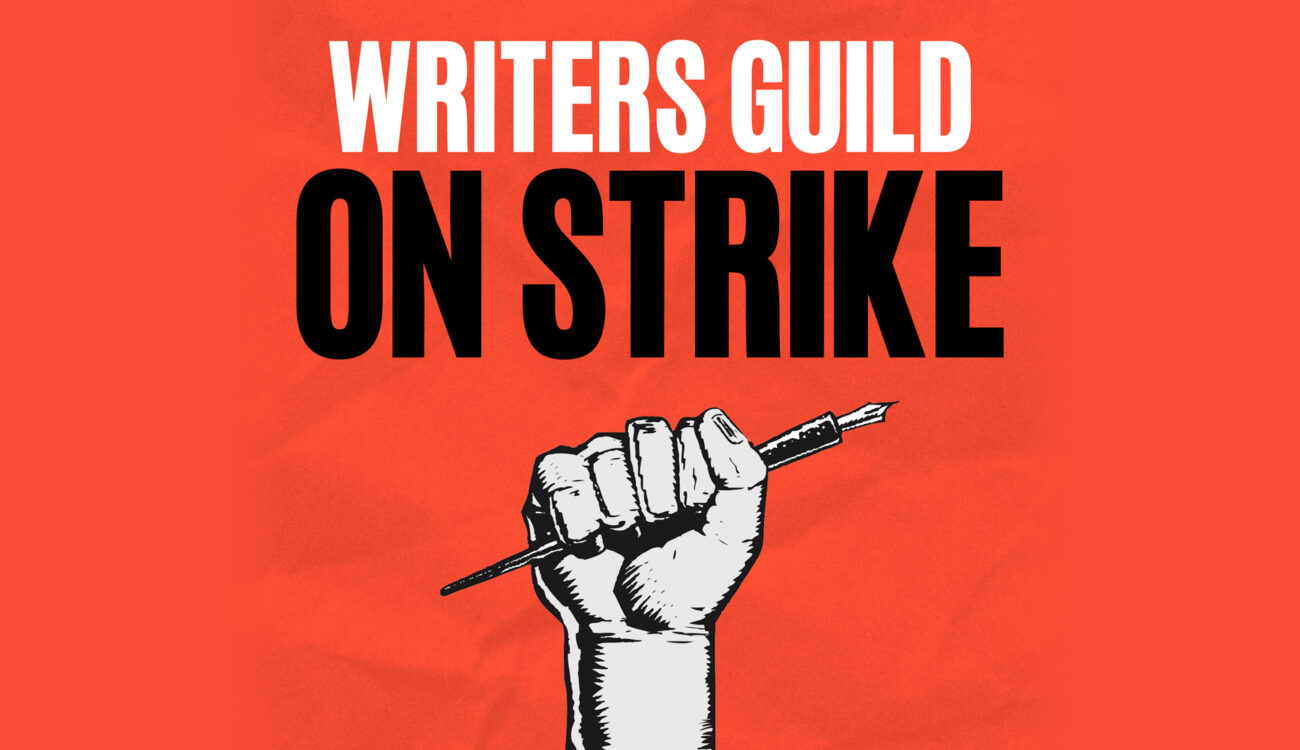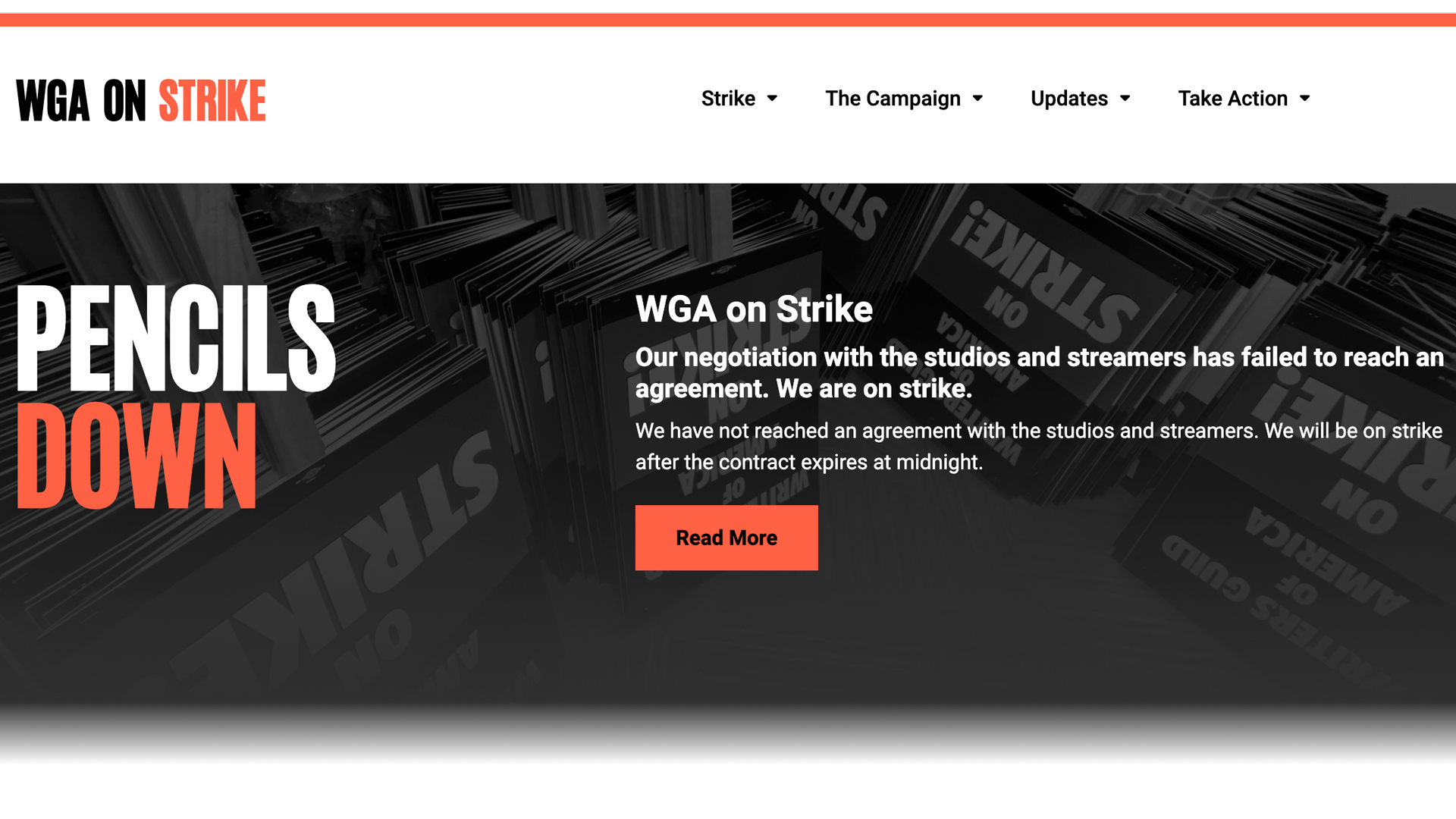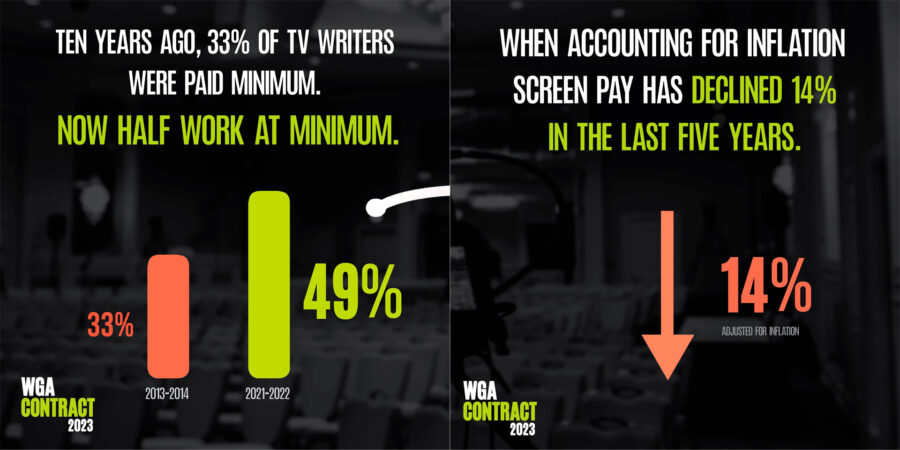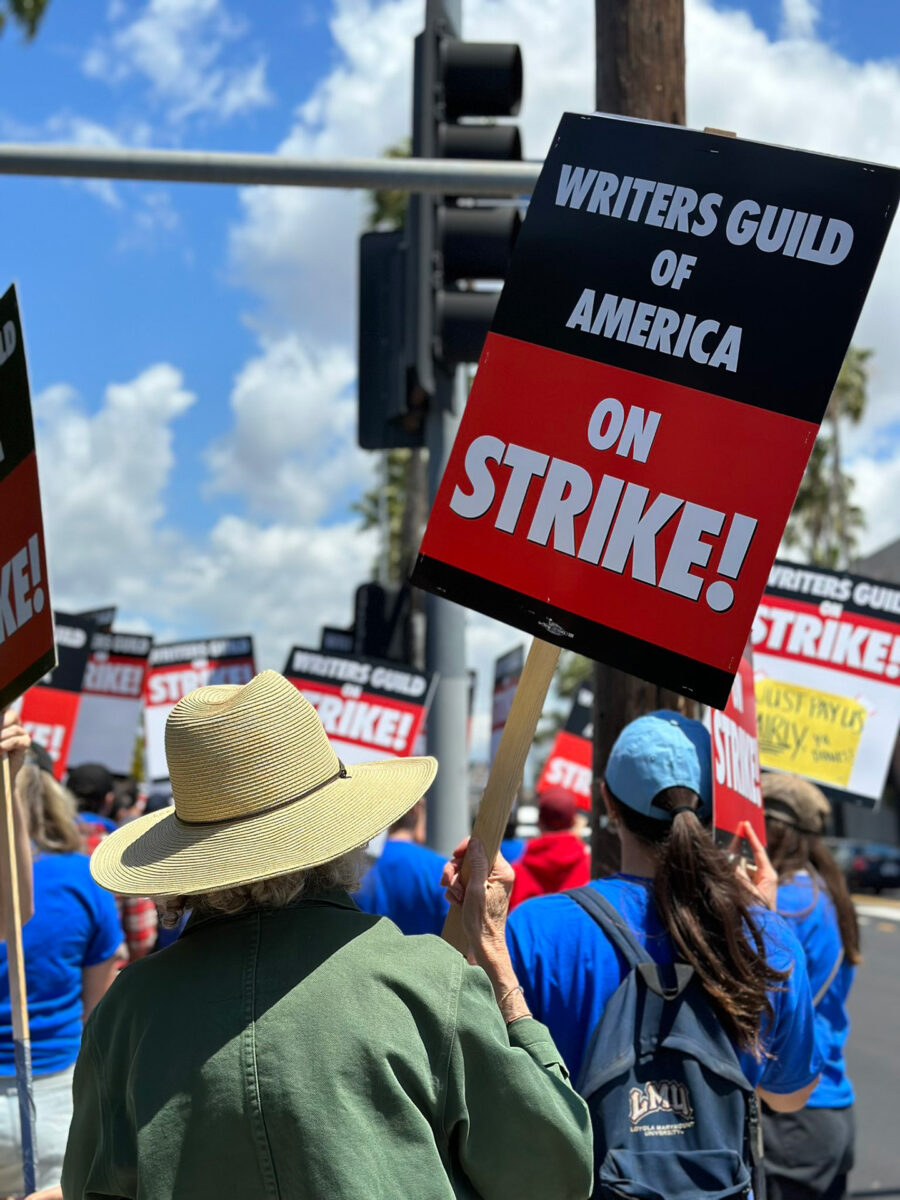
“Pencils down!” With this loud appeal, thousands of movie and television writers have gone on strike this week. As the Writers Guild of America explains in their official statement, they tried to negotiate a new, favorable contract with the major Hollywood studios and streamers, but couldn’t reach an agreement. The union’s main demands include higher pay and better working conditions for its members, emphasizing “the existential crisis writers are facing”. Below, we gather all the information on why the Writers Guild is on strike, how it will affect productions, and what else to expect.
It is the first WGA strike in the last 15 years. The guild leaders call this moment existential, as the survival of writing as a profession is at stake. They criticize the so-called “gig economy” that’s been brought about by the rapidly growing streaming industry. Artificial intelligence is also an issue. How long the writers will remain on strike is unclear. Yet, as long as they are, large parts of production, as well as late-night shows, are going to be put on halt.

The Writers Guild is on strike – how did it happen?
The East and West branches of the Writers Guild of America represent over 11,000 TV and film screenwriters in total. Every three years, they negotiate a new contract with major Hollywood studios and streaming giants under the umbrella of AMPTP (the Alliance of Motion Picture and Television Producers). These include, for example, Netflix, Amazon, Apple, Disney, Paramount, NBC Universal, and others.
This time, the negotiations went on for 6 weeks. Back in April, the WGA held a vote among its members to decide whether to go on strike, and the results were announced on Twitter: a whopping 97.85% of members voted “yes”. At that point, they were still trying to make a fair deal with the studios, as the representatives wrote in their statement. Unfortunately, that didn’t turn out to be the case. The WGA officially called a strike to begin on May 2, 2023, at midnight – the moment the current contract ends.
Producing from the Front

The AMPTP released a statement saying they had presented the Guild with a comprehensive package proposal and were willing to improve it. However, the union wouldn’t budge on their other demands, which the AMPTP deemed unworkable. As an example, they mention the “duration of employment” that would require a production company to staff a show with a certain number of writers for a specified period of time).
The AMPTP member companies remain united in their desire to reach a deal that is mutually beneficial to writers and the health and longevity of the industry.
A quote from the AMPTP statement on Twitter
The main reason why the Writers Guild is on a strike
The biggest issue for the writers in question is pay. In the recent WGA report titled “Writers Are Not Keeping Up”, the union detailed how the takeover of evolving streaming giants had negatively impacted the compensation for writing. The Guild leaders point out that “while series budgets have soared over the past decade, median writer-producer pay has fallen.” Yes, media companies invested billions into streaming services, but they didn’t offer the same compensation system for creators.

In the network television era, a writer would work on a series with 20 or more episodes, which provided them with a steady job for, say, an entire year. In addition, writers could also receive residual payments whenever a show was licensed. But the global streaming services like Netflix or Amazon don’t really play along, paying only fixed residuals (regardless of how popular the show becomes – take, for example, “Stranger Things”). The number of episodes in the new series, as well as the writer’s wage, have also declined compared to wages in the last decade. As WGA argues, studios make a lot of money on streaming productions, but this wealth never reaches the people who create the successful stories in the first place.
From their refusal to guarantee any level of weekly employment in episodic television, to the creation of a “day rate” in comedy variety, to their stonewalling on free work for screenwriters and on AI for all writers, they have closed the door on their labor force and opened the door to writing as an entirely freelance profession.
A quote from the WGA strike announcement
Another big question is how emerging artificial intelligence tools may affect the future of screenwriting. (For example, we wrote here about the large language model ChatGPT. You may see some “funny” jokes on social media suggesting that it could replace writers while they are on strike). Of course, there are a lot of worries among creatives that big studios will use AI instead of hiring actual professionals in order to make even more money out of thin air.
To protect its members, WGA also made some proposals in this area. Simply put, the Guild doesn’t want to see AI-generated content as the original material for the development of TV shows and films. “We proposed that AI not be used to undermine our work; they rejected our proposal and offered an ‘annual meeting to discuss advances in technology’. Wow, a MEETING?!? Thank you ever so much!!”. “An insulting counter, just dripping with contempt,” quipped stand-up comic, writer, and TV host Adam Conover ironically on Twitter.
What does the WGA strike look like?
Well, the WGA quite literally ordered its members to “immediately stop writing for all struck companies”. Every member must follow the Strike Rules. The principles behind these rules exclude any negotiations with the AMPTP productions and the providing of writing services (like creating original scripts or selling literary material to a struck company). If you want to read all the rules, please head over to the official Guild page.
Also, WGA published the picketing schedule, and hundreds of members started occupying streets outside major studios in Los Angeles, New York, and other cities. For example, the New York Times reported on recent picketing outside NBC Universal: “The writers chanted “No contract, no content” and held up signs with slogans like “Pencils Down!!!” and “Spoiler Alert: We Will Win.””

Will the general audience notice the strike?
The specialists assume viewers will begin to notice a gap in new TV shows by the end of the year if the strike continues. Some companies will have to broadcast series in heavy rotation. Others can produce material that was already in the making, where scripts were already finished. At the same time, major streaming services like Netflix have a large base of upcoming series and films from all over the world. (Remember the huge success of “Squid Game”, produced outside of the United States?)
If we talk about late-night shows, however, they will go dark. Among the first ones affected by the Writers Guild strike is ABC’s “Jimmy Kimmel Live!”, CBS’ “Late Show With Stephen Colbert”, and NBC’s “Tonight Show Starring Jimmy Fallon”. They will air repeats until further notice. The comedic show “Saturday Night Live” also canceled a new episode scheduled for this weekend. Like some other hosts, Seth Meyers – a WGA member who supports the union’s demands – prepared the viewers of “Late Night” for re-runs last Friday during his show.
How long will the strike last?
That’s an open question. The last Guild strike in 2007 lasted 100 days, although writers gradually returned on air after a couple of months. As WGA reminds everybody in the official announcement, the purpose of this strike is to win the best possible contract for writers. Until then, we should prepare for disruptions to TV and streaming shows. For most of the union members, it will also mean forgoing income from writing and tightening belts for the months to come.
What about you? Are you a member of WGA and also on strike? If not, how does this whole situation affect you and your branch? Where do you see the possibilities for resolving these conflicts of interest? Let’s have a discussion in the comments section below!
Feature image credit: the Writers Guild of America West.




























